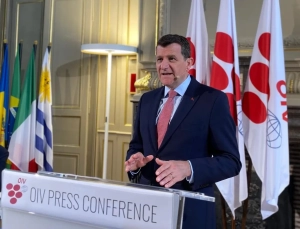Posted: Saturday, 18 March 2023 09:30
Chandigarh Excise Policy 2023-24 falters with fewer takers
The highest price was fetched by the liquor vend of Palsora that went to Kler Wines for Rs 11.65 crore against the reserve price of Rs 9.60 crore. The second highest bid for the liquor vend was that of Sector 61 market which borders Punjab area with Monarch Wines bagging it for Rs 9.55 crore against the reserve price of Rs 9.52 crore. The liquor vend of Sector 48 market had the third highest bid from Kler, of Rs. 8.95 crore against the reserve price of Rs 6.19 crore. According to the administration, Rs. 2.17 crores were also collected as non-refundable participation fees.
Liquor trade blamed the “not-so-friendly” UT excise policy this year as compared to that of Punjab. Chandigarh could earn only half of what it earned from the revenue in the auction of vends last year. However, the auction of 43 vends with a reserve price of Rs 202 crore clocked Rs 221 crore. Though an increase of Rs. 19 crores, it had earned Rs 420 crore from the auction of liquor vends against the reserve price of Rs 344 crore.
D.S. Kler, owner of Kler Wines reportedly said, “In Punjab’s excise policy, there is no VAT or excise on liquor while Chandigarh policy is not friendly at all. This has resulted in more than half the total 95 vends not finding any takers. One needs to introduce more incentives to encourage bringing in people to take the liquor vends.” He bought six liquor vends during this auction but said he had to bid outrageous prices only because of his competition.
In Punjab, there is an open quota, but in Chandigarh, they have fixed the liquor quota of 18 lakh liquor cases for a year, said another contractor. Besides, Rates are uniform in Punjab and the neighbouring Panchkula. People from Mohali would not buy from Chandigarh where even the license fee is higher. There is no deduction in liquor quota, no reduction in VAT, and excise duty either, terming the policy a failure. In 2022, rates of liquor in Chandigarh were on a par with those in Mohali and Panchkula.
A senior officer of the Chandigarh excise conceded it was the impact of Punjab excise policy. “Because of the Punjab Excise Renewal Policy, people have gone there to bid. Auction is in progress even in Himachal Pradesh and a few bidders have gone there. ‘We will be holding an auction next week and we hope to get a profitable response,’ he said.
Trying to lure contractors for the bid of vends left out so far, the department also mentioned some ‘benefits’ of the excise policy of 2023-24 released on March 1. After the first round of bidding, the Department is in the process of publishing tenders for the second round which has been announced.
Delhi Excise Policy 2022-23 extended further till September
Meanwhile, the Delhi Excise Department has announced a further extension of the current excise policy which went into force in July last year and will now continue till September 2023. Traditionally, the policy is given extensions till August- September on expiry of the old policy on 31 March every year. Despite the turbulence caused by the Policy change, the government hopes to stabilize the market with this extension while they get to work on the new Policy for April1, 2023 – March 2024.
In addition to the extension of the existing policy, the government has directed the Excise Department to formulate a new Excise Policy at the earliest,” according to an official statement issued on 15 March, 2023.
In July last year, the Governor of Delhi had ordered a CBI enquiry into the working of the senior officials and a few arrests have also been made. The ‘new’ policy was scrapped and replaced with the earlier policy till a ‘proper’ policy could be formulated. The government had earlier announced that the government undertakings handling retail were more corrupt and so the Retail was handed over to private companies but the change brought Retail back to the government agencies. Till a new policy is formulated, this model is expected to continue. Due to the friction within two political sides, it is anybody’s guess when the new policy would be formulated.
Subhash Arora




